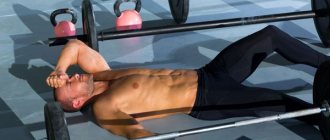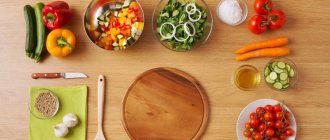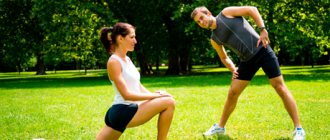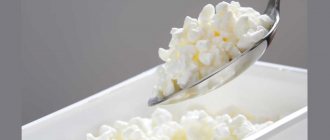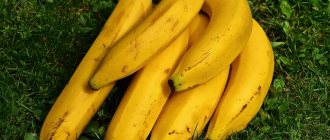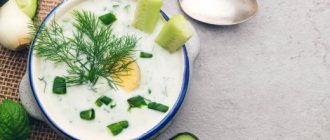What can happen to jogging if you don't follow proper nutrition?
The effectiveness of the workout will decrease, the duration of the run will be shortened, the athlete may feel fatigue, nausea, pain in the side, heaviness in the stomach, flatulence, and severe hunger.
Inexperienced athletes even run the risk of fainting, hypertensive crisis or indigestion.
Is running really such a dangerous activity? Not at all if you know what to eat before running, after training and even during sports!
Is it possible and necessary to eat before a run?
Running on an empty stomach is only beneficial for athletes with a slow metabolism. This is explained by the fact that morning exercise allows you to burn the most calories due to the absence of proteins and carbohydrates in the body, which are an energy source. But other factors will also influence a good result.
Running on an empty stomach, like all other sports without first consuming food, has no effect on weight loss. In this case, the number of daily calories is important.
And when exactly the food was taken - before running or after - does not matter. The main factor is the comfort of these runs for a particular person.
Sportspit
Sports nutrition, offered by many companies, is a definite convenience for runners. First of all, this is a significant saving of time, which is spent on selecting and purchasing the necessary goods, manufacturing them, and checking compatibility.
The second convenience is the ability to choose one or more products that will provide the necessary set of nutrients at this stage of preparing a lesson or, in particular, during a run.
The nuances of eating before exercise
Knowing what to eat before running requires a few things to consider. Firstly, this is the upcoming load. If it is high, then the body will spend more calories, and, accordingly, carbohydrates are required. Pay attention to dried fruits, baked goods, cereals and bananas.
Secondly, this is the duration of the workout. That is, the longer the athlete runs, the more food should enter the body:
- for short distances (no more than 40 minutes), you can not eat before classes;
- for activities within 1-1.5 hours, you need to take care to “recharge” a little before running;
- During a long run (more than 1.5 hours), you definitely need to eat something before training.
Determining calorie needs for different types of running workouts
A runner weighing 80 kg burns approximately 550-650 kcal in 1 hour of jogging, taking into account the pace of exercise. To maintain muscle tone for 90 minutes, a light snack half an hour before training is enough - this way the athlete will not feel hungry and will increase the amount of sugar in the body.
If classes are carried out in the morning on an empty stomach, then the energy reserve will be slightly less (still, more than 7-9 hours have passed since the evening meal). But if you don’t plan to run for a long time, then you don’t need to worry about a lack of calories.
Average metabolic rate of the body
People with an average metabolic rate usually have a small amount of subcutaneous fat and find it difficult to gain weight quickly. The most important thing for these athletes is to eliminate snacking. Eating food equal to the required calories for them is no more than 6 times daily. Otherwise, your metabolism may increase. But the caloric intake must be increased to approximately 4500 Kcal to gain weight.
At the same time, you can eat beans, rice, potatoes. These carbohydrates should be consumed by people with an average metabolic rate before exercise. And to gain weight you will need proteins - 3-6 g per 1 kg of weight.
Optimal nutritional composition
Usually, 20-40 minutes before a run, food after consumption is almost completely digested, and the person will be full of energy. It is at this time that sports supplements can be used. Their essence is to improve endurance. Drinks that contain arginine and caffeine will do an excellent job of this.
The latter gives endurance, improves concentration and activity activity. Arginine allows you to dilate blood vessels, stimulating the supply of large amounts of blood to the muscles, which is required to accelerate their growth.
If your main goal is to lose weight, then you can burn fat with L-carnitine. By itself, it is not a fat burner, and it only has this effect in combination with active exercise.
The most popular products are complex pre-workout complexes. What to eat before running:
- minerals;
- vitamins;
- anabolics;
- adaptogens – drugs that increase performance;
- nootropics – required to increase blood circulation in the brain;
- psychostimulants that reduce the pain threshold;
- recovery drugs.
Pre-workouts are required to boost energy and should not be taken on their own. The compositions should be used for their intended purpose only under the supervision of an experienced trainer.
Breakfast
If you've been training for more than six months and are seeking the benefits of certain sports fruits (i.e. you're not running for weight loss rather than for athletic performance enhancement purposes), it's a good idea to start preparing for your awakening.
For reference, this is an adequate protein breakfast consisting of regular food or sports nutrition products. A good amount of protein for breakfast is 0.5 - 0.7 g per kilogram of body weight.
Beta-alanine and arginine are good for training. Together, they improve blood circulation in the muscles and normalize energy metabolism, increasing the threshold of fatigue.
If you are not a professional runner, opt for a high-protein breakfast and also take a vitamin and mineral supplement as standard for antioxidant benefits.
Ideal time to eat before exercise
It is recommended to eat 60-90 minutes before starting a run. This is necessary so that the body has time to digest food and absorb beneficial microelements. But you need to take into account the important point that each person is individual. Therefore, we decided to offer several relevant and effective ways that will allow you to synchronize your food intake with the start of your run.
Before the morning run
If jogging occurs early in the morning, then you need to have breakfast 90 minutes before. A large amount of carbohydrates, the required amount of protein and a sufficient amount of fat - this is what an athlete will need.
What to eat before running in the morning: a piece of whole grain bread with cottage cheese and tomatoes, or fruit muesli with skim milk.
Before an afternoon or evening run
What to eat before running for night owls:
- 2-3 spoons of honey;
- a glass of jelly;
- dairy products;
- energy drink bottle.
If you have no appetite in the evening, you need to make the afternoon snack more “dense”. What to eat before running during your second breakfast:
- porridge;
- whole grain bread with peanut butter;
- chicken;
- eggs;
- cottage cheese;
- chocolate;
- soy;
- buckwheat and cottage cheese casserole;
- rice;
- nuts.
Before long distance running
The main rule for long-distance running is not to eat food that you have not taken before, because the body’s reaction cannot be accurately predicted.
Most athletes prefer this diet - oatmeal with jam.
Attention! The evening meal before a race of several kilometers should also be light. Excessive amounts of fatty food one day before running will negatively affect the quality of night's rest and will be reflected in cramps in the gastrointestinal tract during exercise.
What's the best way to have breakfast in the morning before running?
Carbohydrates are absorbed faster by the body, so they must be included in the morning diet.
Carbohydrate-rich foods include:
- porridge with water;
- low-fat dairy products;
- energy bars;
- fruits;
- breakfast cereals;
- bakery products;
- additional sports nutrition.
Disagreements regarding the intake of proteins have not yet led to a clear decision. There is a golden mean: do not eat cheese and sausages, but enjoy boiled chicken breast or hard-boiled eggs.
Fruits
The ideal fruit for a pre-run snack is a banana.
It contains almost 100 calories and includes:
- vitamins: K, choline, E, C, A, B;
- microelements: potassium, phosphorus, zinc, iron;
- carbohydrates: fructose, sucrose, glucose;
- fatty acid;
- amino acids;
- and many other beneficial substances and minerals.
It is better to exclude apples and pears from a pre-run snack, as they contain a large amount of fiber.
Oatmeal, buckwheat
Buckwheat is a source of microelements and therefore deservedly has the title of the most nutritious. It contains B vitamins and iron, which are necessary for training, as they are involved in the process of delivering oxygen to the muscles. Thanks to buckwheat porridge on water, running will be effective and easy.
You can prepare the porridge with vegetables, for example, tomatoes, radishes or carrots, and also drink tea or smoothies with it.
Oatmeal is a popular and nutritious breakfast all over the world. Biotin content is 40% of the daily value in 100 g of porridge. A lack of this vitamin is accompanied by fatigue, lethargy and pain in the muscles, which should not be allowed for athletes.
Avoid buying instant oatmeal as it contains high amounts of sugar.
Whole grain pancakes with honey
It takes more time to prepare pancakes, but they will help give the necessary tone to the body and, accordingly, an effective run.
The recipe for whole grain pancakes is as follows:
Ingredients:
- apple juice, preferably freshly squeezed – 200 ml;
- eggs – 2 pcs.;
- flour – 200 g;
- baking powder – 1 teaspoon;
- vanilla optional.
Mix all the ingredients and get pancake dough. Bake each side until cooked through and then serve, first brush with honey. A delicious and healthy breakfast is ready!
Rice cakes with berries
A great option for a morning snack before running is rice cakes. Berries are chosen to suit every taste: sea buckthorn, raspberry, cherry or strawberry. Rice cakes together with berries are filled with a large amount of carbohydrates and other essential microelements for athletes and morning joggers.
Smoothie with muesli
A smoothie is a drink filled with your favorite and healthy foods. The thick drink is perfect for those who find it difficult to run even with a small snack.
The ingredients may be different, one of the options:
- banana;
- muesli;
- Orange juice;
- yogurt.
All foods must be warm. Mix in a blender and enjoy the taste while looking forward to an effective workout.
Energy bars
The bars fill you up well and give you the energy you need for running.
When choosing, the following food additives must be excluded:
- maltose;
- sucrose;
- syrup;
- corn syrup.
The best thing is a homemade energy bar made from oatmeal, honey, nuts, dried fruits and butter.
Planning your diet before training or competition
Foods with a lot of carbohydrates are the best choice for competition. They allow you to get glucose - the main energy source when running. It penetrates the blood and makes it possible to immediately obtain the energy that is needed, remaining in the body for more than a week in the form of glycogen.
Low to medium intensity
What to eat before running in the morning with low to moderate activity:
- nuts;
- bananas;
- chocolate.
On a note! When deciding what to eat before running, you can also consider drinking a small amount of sweet tea with baked goods.
High intensity
What to eat before a high-intensity running competition:
- potatoes;
- pasta;
- buckwheat;
- oatmeal with nuts.
The same food should also be eaten for dinner if the upcoming competition starts in the morning.
Don't overdo experiments
Keep in mind that you can experiment with some things (like toasted bread with berries spread on it instead of a banana), but don't try too many unfamiliar foods or dishes before your race. Otherwise, you'll learn the hard way that this is a surefire way to get an upset stomach. The same goes for too much fiber. Don't load up on high-fiber foods before a race because they can cause bloating or gas.
“Black list” of foods that should not be consumed before and after a run
In addition to alcoholic drinks, fatty and spicy foods, that is, those that are clearly not suitable for sports nutrition, there are seemingly harmless foods that are still not recommended to be consumed before running:
- Beans. Heaviness in the stomach awaits the athlete after taking legumes.
- Cabbage. It seems to be beneficial for humans, and therefore it is worth having one of the varieties on the runner’s menu. But this vegetable contains sulfur. And if you eat a salad made from it before a run, you may develop flatulence.
- You need to be careful when using fresh fruit juices. Some people drink them before workouts and do not notice any problems. The latter suffer from stomach pain, which is provoked by large amounts of fructose.
- Milk. Almost 80% of people are lactose intolerant. Therefore, milk that was drunk before running on sports tracks is almost guaranteed to cause indigestion.
On a note! You cannot consume fresh juices before classes, at least 2 hours before. It's better to just snack on a pear or other fruit.
Can I drink the water?
While running, water interferes: it weighs down the stomach, complicates the functioning of the cardiovascular system, strains the kidneys, and increases blood pressure.
However, the body sweats and loses water with exhaled steam, so you need to drink it, but in small quantities.
It is recommended to drink up to 200 ml of water before starting a workout.
After the race, be sure to replenish your fluid reserves!
What to eat after a run and how much?
When considering whether you can eat before running, you must not forget about maintaining nutrition, which is necessary to restore strength and consolidate the effect of the workout. How long after can you take a second breakfast?
- no earlier than 40 minutes after completion of the workout;
- at least 15 minutes before.
After classes, it is recommended to include in the daily menu:
- eggs – up to 3 pcs.;
- meat – about 200 g;
- porridge;
- dairy products.
What foods should runners avoid?
Now let's look at the main “enemies” of proper nutrition:
- Products high in fat and sugar
- Difficult to digest foods (bacon, fast food)
- Alcohol and energy drinks
- Products that can provoke gastrointestinal disorders (melon, broccoli, bell pepper).
- Fried foods
